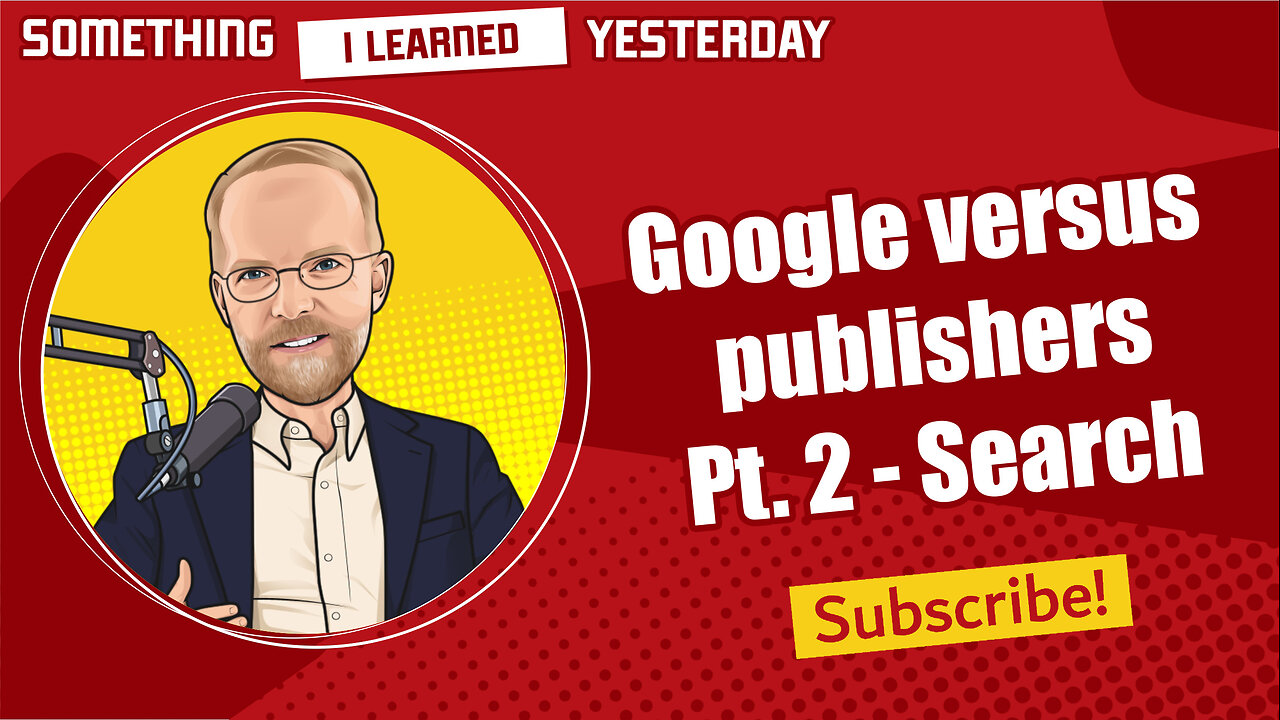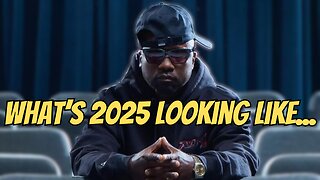Premium Only Content

197: Google vs. Publishers part 2 -- Search
This 2nd in a 4-part series gives some perspective on how publishing got into its current mess with artificial intelligence.
Part 1 - copyright
Part 2 - search
Part 3 - generative AI
Part 4 -- what's next
Part 2 – The Search Bargain
The Internet was a new way to reach audiences and to monetize content – mostly with ads, which were very profitable at the time.
Search became the gateway, or the discovery tool. But it didn’t start like that.
Before good search, sites were categorized at a high level in directories. Google changed all that with excellent search.
Search engines would crawl websites, scrape the content, index it, and then visitors would search against that index. Search became the main discovery tool.
Publishers should not have gone along with this.
Google’s mission is to organize the world’s information and make it universally accessible and useful. That means free. The Google bias is towards free content supported by ads. Which they control.
Google rules search. Nobody else is even close. That means Google controls content discovery, so if you want to be found on the internet, you have to follow Google’s rules.
Publishers have many different choices for how to monetize their content. Google has created an environment that heavily biases things towards one model – that is, free content supported by ads controlled by Google.
This has created a perception with the public that content ought to be free. This expectation that content should be free lowers the perceived value of content.
The funny thing is that Google needs this content – which they don’t create. Publishers have always had leverage here, but they’re never used it. They’ve allowed to write the rules of the game.
The whole industry is infected. As the gatekeeper of discovery and the dominant player in the ad space, Google’s perspective wins. It’s not just their doing. As I said in Part 1, most of Big Tech believes in this idea of free content supported by ads, and that’s infected all content delivery platforms.
Consider podcasts. The default assumption is that you get the podcast for free. It’s very difficult to integrate podcasts into a membership or subscription model.
The bottom line is that Google and other Big Tech companies have a set of interests that do not align with the interests of publishers and content creators.
In Part 3 I’ll discuss how generative AI has made this mess even more complicated.
-
 1:36:46
1:36:46
Kim Iversen
6 hours agoLee Harvey Oswald and Cuba: The New Evidence That Changes Everything
48.5K31 -
 2:19:43
2:19:43
TheSaltyCracker
4 hours agoCybertruck Bomber Manifesto Leaked ReeEEeE Stream 01-03-25
104K168 -
 1:44:12
1:44:12
Roseanne Barr
4 hours ago $8.32 earnedSquid Game? | The Roseanne Barr Podcast #81
46.9K29 -
 1:13:27
1:13:27
Man in America
9 hours ago🚨 2025 WARNING: Disaster Expert Predicts 'ABSOLUTE CHAOS' for America
23.2K13 -
 LIVE
LIVE
I_Came_With_Fire_Podcast
10 hours agoNew Years TERRORISM, Mexico trying to FAFO, and DARK MONEY to US Think Tanks
220 watching -
 1:47:40
1:47:40
Glenn Greenwald
6 hours agoThe Key Issues Determining the Trajectory of the Second Trump Administration: From Israel and Ukraine to Populism and Free Speech | SYSTEM UPDATE #382
58.7K36 -
 1:02:44
1:02:44
The StoneZONE with Roger Stone
4 hours agoRoger Stone Unveils His 16th Annual International Best and Worst Dressed List | The StoneZONE
24.6K3 -
 45:22
45:22
Kyle Rittenhouse Presents: Tactically Inappropriate
5 hours ago $2.45 earnedKyle Rittenhouse Presents: Tactically Inappropriate
26.1K14 -
 1:13:16
1:13:16
Patriots With Grit
4 hours agoThe Comedy of White Privilege & Government | A.J. Rice
19.4K1 -
 49:40
49:40
Havoc
9 hours agoWhat's 2025 Looking Like... | Stuck Off the Realness Ep. 23
40.1K2